Farming is in my blood. I spent my youth hauling hay, feeding cows, and harvesting crops. I tried to escape the farm during college, but it lured me back. Today, our family raises sheep. When the Kansas Farm Bureau and Kansas Soybean Commission invited me on a Farm Food Tour, I was all over it. I love food and I knew the ins-and-outs of farming. It was a match made in farm heaven! Turns out, I didn’t know (soy)beans.
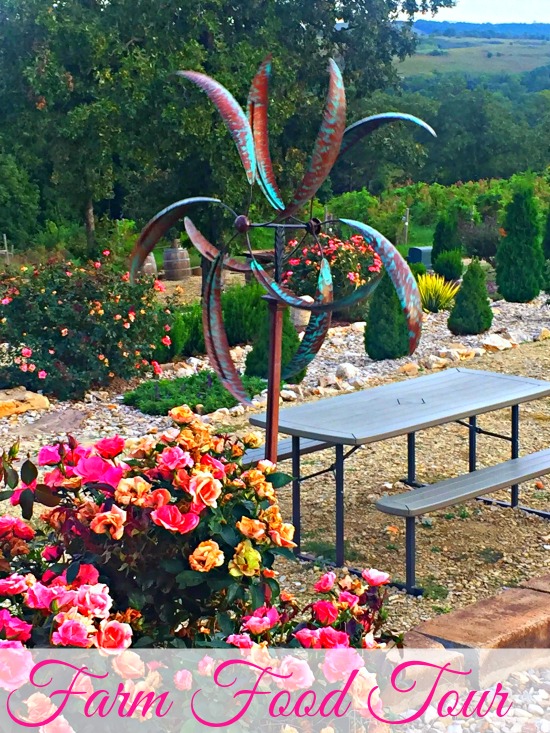
Kansas is home to over 61,100 farms. Most (97%) are family-owned. These farmers share a passion for their profession, but that’s where the similarities end. We visited eight diverse farms, listening as families shared their stories. Some were heartwarming. Some were heartbreaking. All of them gave me a new respect for farming.
The Farm Food Tour 2019
Day One
Juniper Hills Farm
Our first stop was Juniper Hill Farms, owned by Scott Thellman. He purchased a haying operation as a teenager and never looked back. Over the years he expanded into vegetables and distribution, growing a harvest of 50% organic vegetables and 50% conventionally farmed vegetables. Much of Scott’s produce is sold to local restaurants and school districts. Surprisingly, most customers opt for conventionally farmed vegetables.
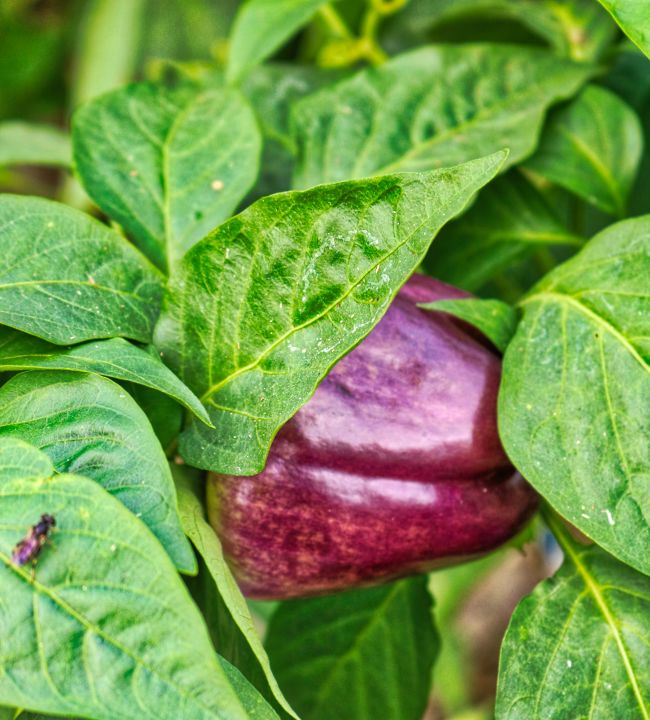
Cost is the factor in the decision. Organic crops still receive pesticides, but it’s a labor-intensive process. Farmers may only use USDA approved organic synthetic or natural products. “The cost difference could be $50 for conventional pesticide, compared to $500 for organic pesticide,” Scott said. Instead of using unnecessary treatment on any of his crops, he opts for improving the soil through cover crops and crop rotation whenever possible.

Good Farm
Next, we visited Craig and Amy Good’s Pig Farm. They’re experienced farmers; raising cattle, pigs, corn, and soybeans since 1981. “Pork should be a good eating experience for the consumer,” Craig said, “and that starts with quality.” Working with Heritage Foods, they raise Tamworth, Duroc, and Gloucestershire breeds, known for their tender, marbled meat.
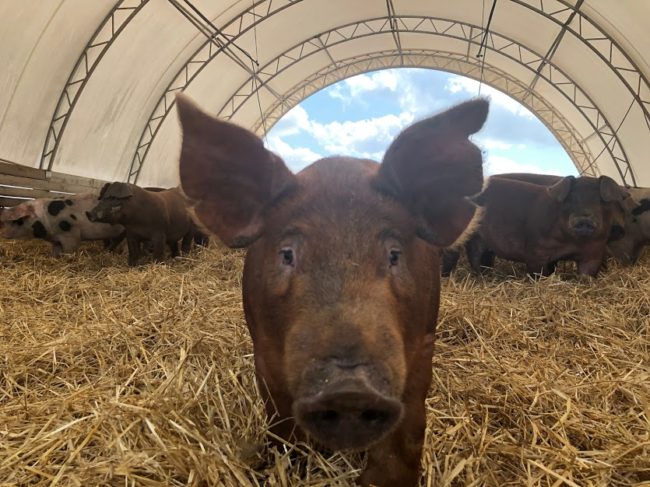
While most people expect a pig farm to be dirty, this wasn’t the case at the Goods’. “Health is our main concern,” Craig explained. This means being proactive. Visitors are required to wear booties to prevent bringing diseases onto the farm. The little porkers are subjected to as little stress as possible and have a special diet. Seriously. Animal nutritionists have helped develop a proper diet for each stage of the pigs’ lives.
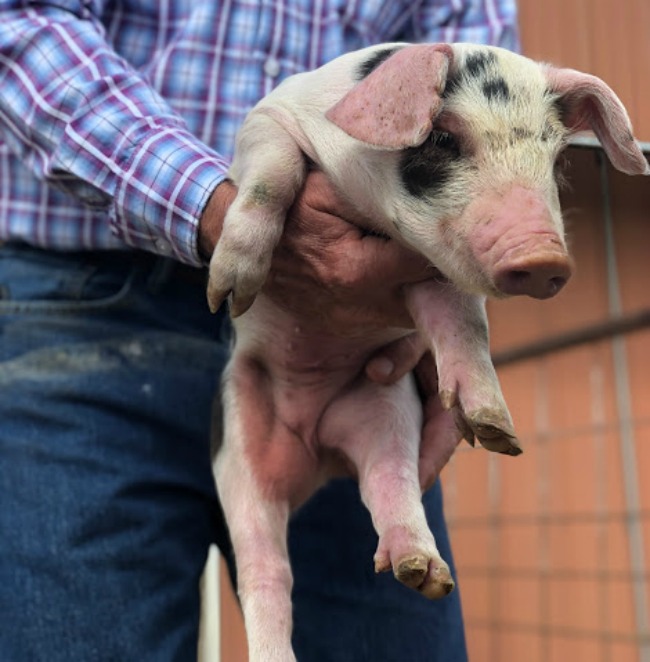
Want to know how to pick the best pork? Take this advice from Craig. Check the color. “Redder is better.” For tender meat, look at its appearance. Marbled meat without moisture pooling at the bottom of the package is best.
Liquid Art Winery
We finished our first day at Liquid Art Winery, owned by David and Danielle Tegtmeir. This vineyard, located in the heart of the Flint Hills, has soil and topography similar to the vineyards of Bordeaux, France. A native Kansan, David earned degrees in Enology and Viticulture. After graduation, he and Danielle worked with a winery and several cider companies before returning to Kansas. Today, they raise grapes no one believed could be grown in the Kansas climate.
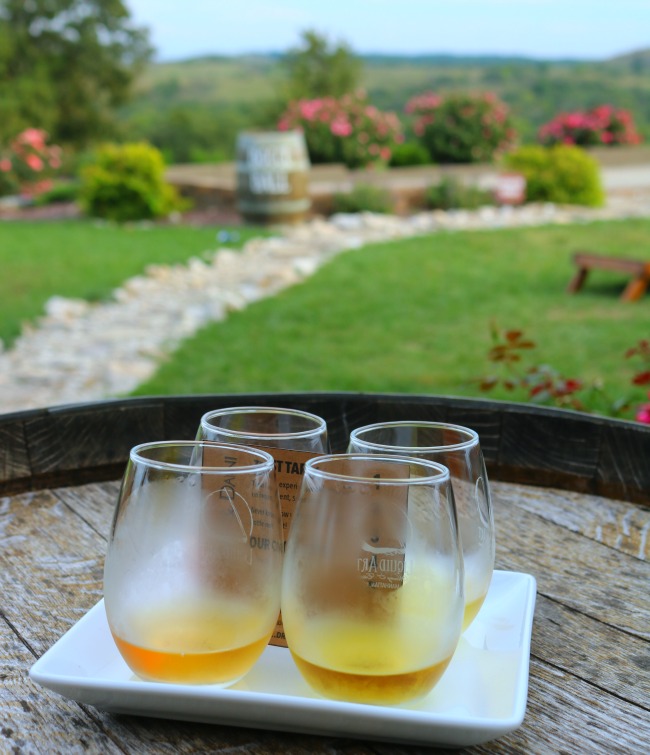
Their winery has expanded to include a tasting room, an event space, and a collection of hard ciders. Tastings are available for flights of wine or flights of ciders. Hint: Try the seasonal Cherry Limeade.
Since 2018, Dave and Dani have expanded their business, creating a vineyard development and management company. “We partner with landowners across the state to develop land that is unsuitable for crops or cattle into vineyards,” Dave said. Liquid Art Wines and Ciders are only available in Kansas stores, but don’t worry! Shipping is available for 37 states and the District of Columbia.
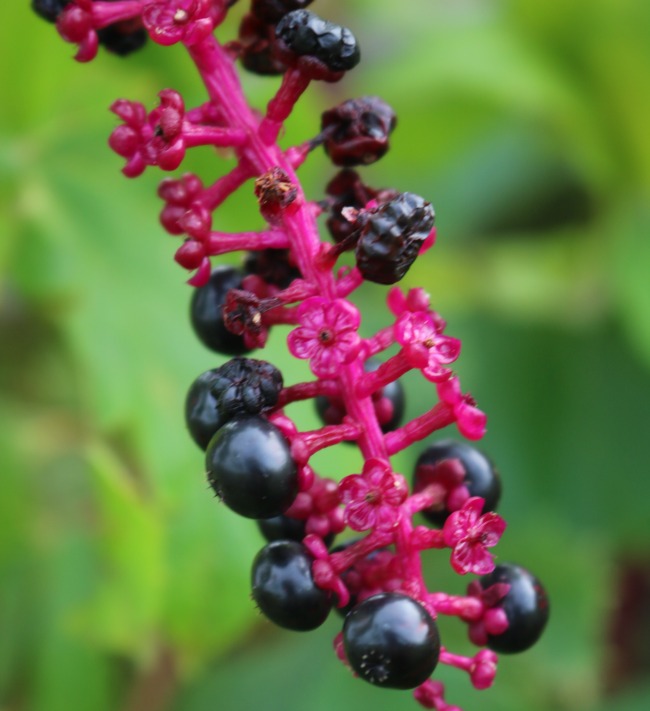
Day 2
Rowantree Fiber Farm
Not all Kansas Farms consists of hundreds of acres. That’s the case with Colleen and Mike McGee, who dreamed of owning a hobby farm. They moved to Kansas to raise a small flock of pygora (a cross between angora and pygmy) goats, chickens, a donkey, and a barn full of cats. These sheep must be sheared twice a year, but produce super soft wool comparable to cashmere.
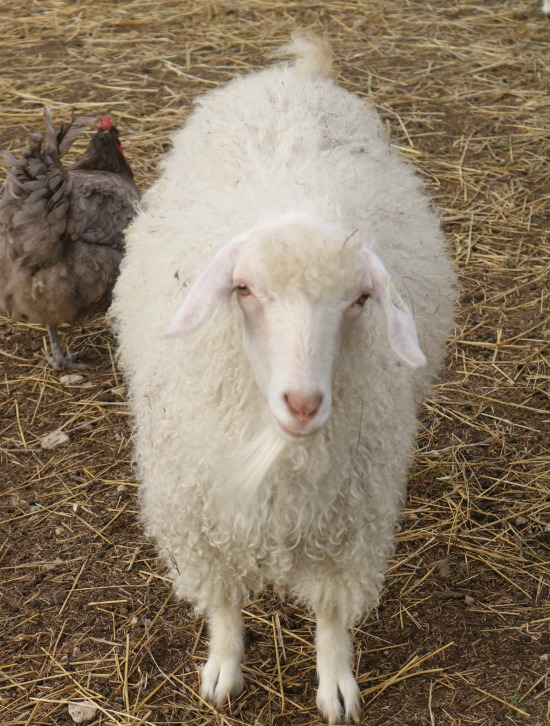
We watched as Dubehasa, an incredibly calm goat, stood still, munching happily on a tray of food as she was sheared. Afterward, we felt the raw wool. “Have you ever worn wool that feels scratchy?” Colleen asked. “That’s because the guard hairs have been left in the wool.”
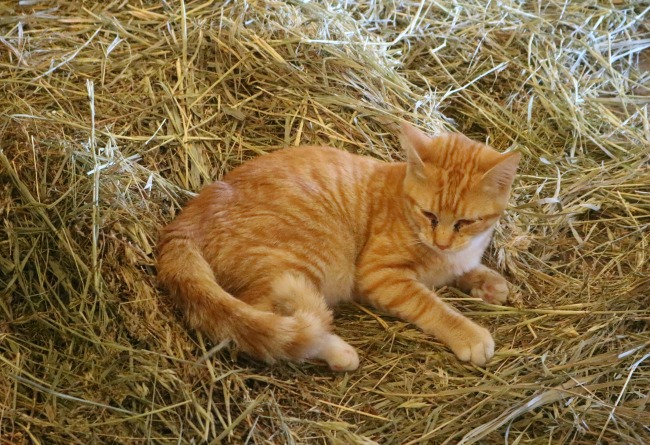
Because they produce only a small amount of fiber each year, most large US fiber mills do not want to work with them. This inspired them to partner with local farmers and artisans to create a niche market that’s good for the farmers and the community. What’s next for the McGees? “Mike wants a llama,” Colleen confided.
Tiffany Cattle Company
Before arriving at Tiffany Cattle Company, I had my doubts about this stop. After all, this was a “finishing company,” the last stop before cows go to be processed. I expected this to be like the stockyards I visited during my childhood; dirty, smelly, and traumatizing. Instead, I found the grounds to be clean, with no smell and no flies. “We use parasitic wasps to kill flies,” Shawn Tiffany explains. “Each week we bring in a shipment. They eat the fly larvae, interrupting the growth cycle.”
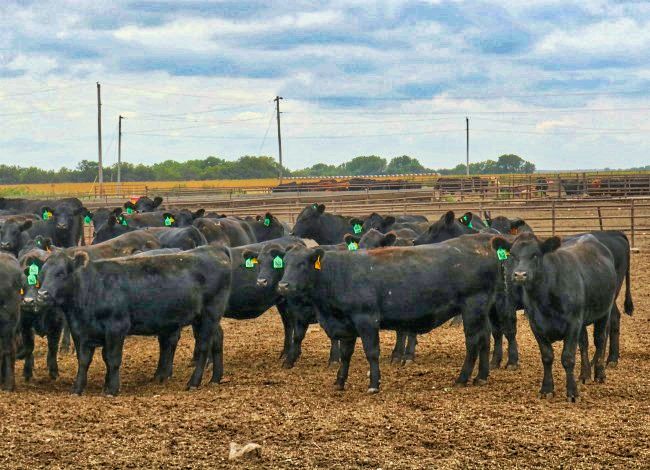
All of the employees of Tiffany Cattle Company are BQA (beef quality assurance) certified. This ensures that the cattle are treated humanely, and demonstrates the company’s commitment to better management techniques, food safety, and food quality. All of their feedlots are designed by Temple Gradin, who has worked for over 30 years to create humane, low-stress conditions for animals.
They feed over 3 million bushels of feed per year. This feed is specially mixed with vitamins and minerals to keep the cows healthy. “It’s better to feed animals to better health than medicate to better health,” Shawn assures us.
Baldwin Farm
We ended our second day at Baldwin Farm where we learned more about the scientific methods used in farming. The family hires agronomists to take soil samples to determine crop yield production. Weekly reports from these scientists provide details on which soil should be amended.
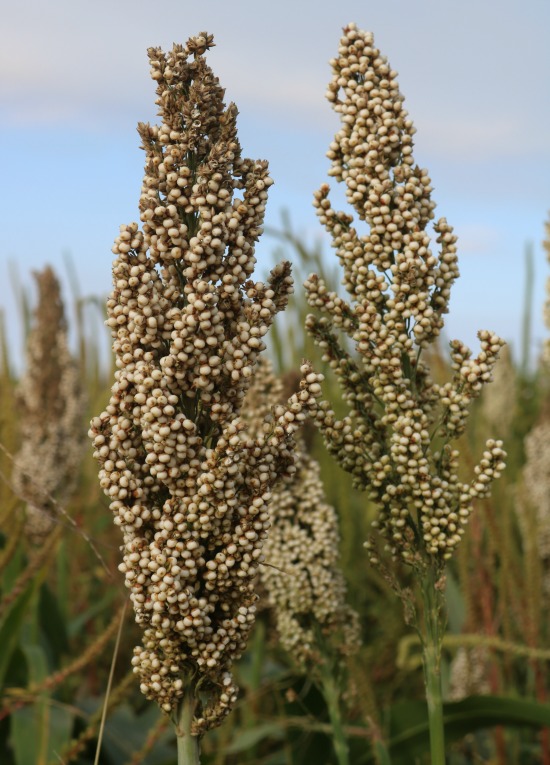
While the Baldwins incorporate many modern techniques, they also rely on tried-and-true farming practices. Most of their fields are “dry land;” meaning they depend on rainfall rather than using irrigation systems. They also practice the”no-till” method. Not plowing fields after the crops are harvested helps to reduce wind and water erosion, reduce weeds, keep the soil aerated, and, hopefully, increase crop yields.

In addition to growing soybeans, sorghum, corn, and wheat, the family also grows mushroom popcorn. Marketed as “Papa Baldy’s Popcorn,” it is presently sold in several Kansas markets. I loved the story behind the name. “We call it that because the kids call their grandpa ‘Papa’,” Kim Baldwin said, “and Adam’s nickname in college was Baldy.”
Wells Dairy
Mornings start early at Well’s Dairy Farm. They milk around 150 cows twice daily, at 3:00 AM and at 3:00 PM. Each cycle takes around four hours from start to finish. It’s a time-consuming process with no holidays or weekends off. “In the ’80s, there were 500 dairy farms in our county,” said Bryon Wells. “Now there are less than 500 in the entire state.”

The Wells do not produce any of their own products. Milk is pumped into a 17,500-gallon holding tank where it is cooled to 38 degrees. A tanker retrieves the milk and delivers it to a nearby dairy plant. As a Gold DFA Standard Dairy, they are required to keep detailed records, treat their animals humanely, and submit to inspections. One of the ways to treat is their animals humanely is to give antibiotics when they are sick.
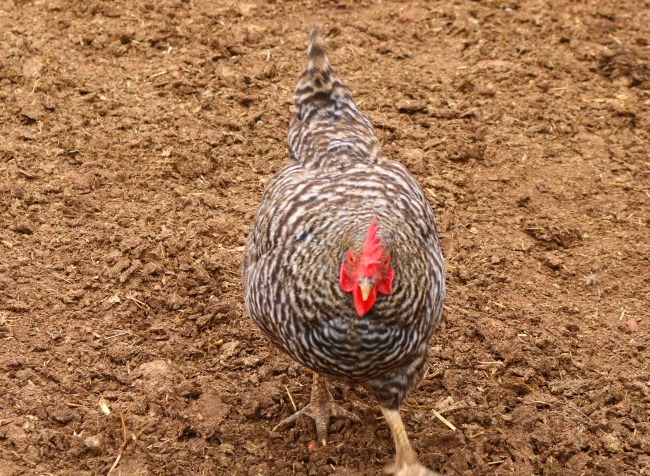
However, you won’t find antibiotics in your milk. Not only is it illegal, but it also comes with a high cost. Each holding tank of milk is tested by the Wells before the tanker arrives. The driver also takes a sample of milk before departing the farm. Anyone who has sent in antibiotic infected milk will pay for the entire tanker of milk. That’s around $8500. The dairy plant will then refuse to pick up milk from the farm until they have sent a representative to re-test the holding tank. The solution? Remove any cows who are taking antibiotics from the herd until they are antibiotic-free.
Leffler Farms
Jacquelyne Leffler is a 4th generation farmer. This 100% family employed farm, located in the Flint Hills, grows corn, soybeans, and wheat, along with beef cattle. Surprisingly, they purchase their cattle in Georgia, where the cost can be up to 30 cents a pound less than in Kansas.
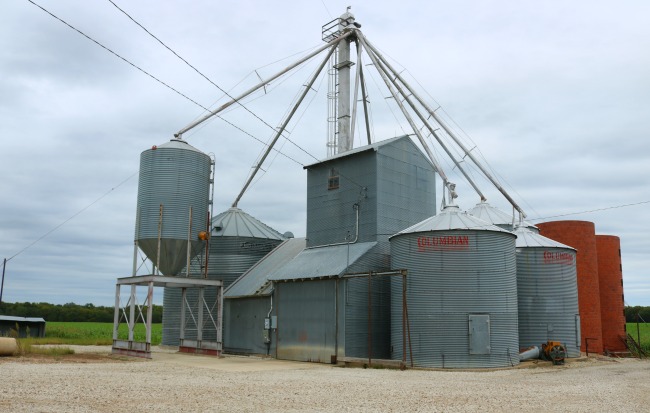
The Leffners use sustainable farming methods. They spot spray for weeds in pastures to prevent killing grass, never till native grasses, and join local farmers in controlled burning of pasture land once a year. This doesn’t mean they don’t embrace technology. Jacquelyne has soil samples taken of the pastures to make sure it has the proper nutrients for grazing cattle and is active on social media.
Sadly, some of the biggest threats to their crops come from humans. “We have trouble with bicyclists or people on ATVs who drive through our fields,” Jacquelyne said.
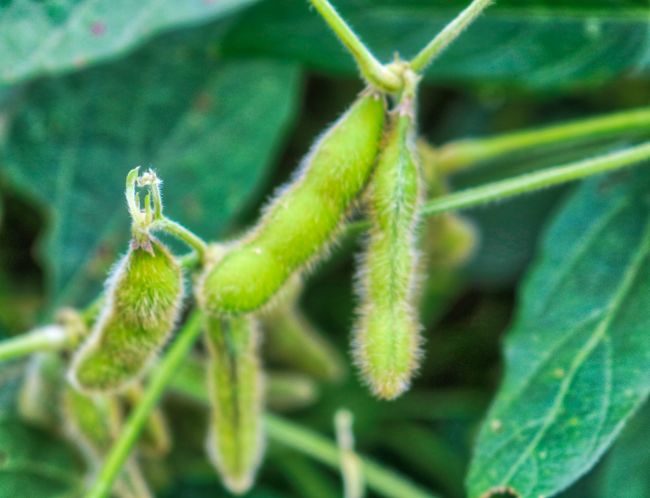
Some Fast Facts About Farming:
- The only difference between food-grade sorghum and sorghum used for livestock feed, biodiesel fuel, and kitty litter is the color. The food-grade sorghum is white. Sorghum is called “milo” in the farming industry.
- Poultry, pigs, cattle, and catfish consume 80% of the soybeans grown in the US. Soybeans are also used as soybean oil (16%) and biodiesel fuel (4%.)
- Indigen Corn is a custom bred strain of corn grown for biodiesel fuel. The ears have random black kernels to show they are not for human consumption.
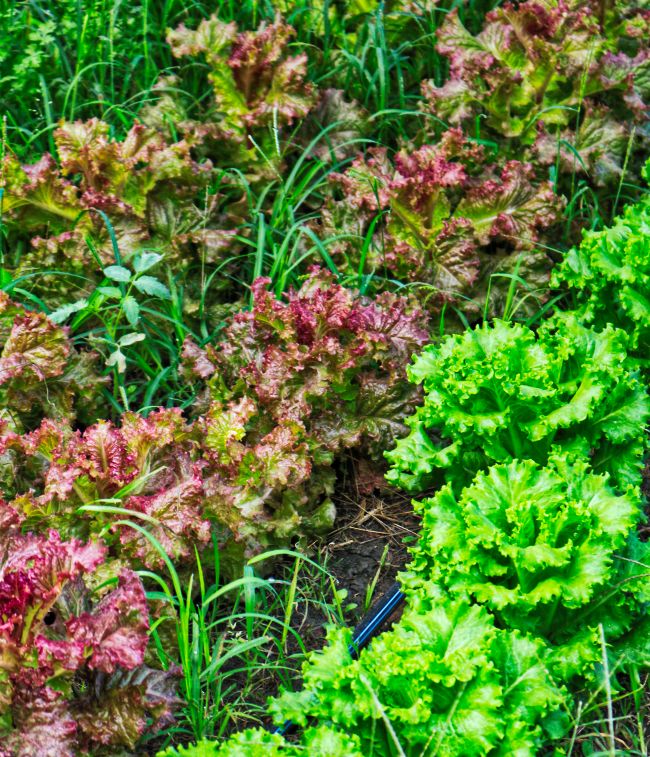
An organic lettuce patch.
I returned home inspired by these farmers and their vision to create sustainable farms for the future. Do you have any questions about US farming? Share them with me. I’ll be happy to pass them along to the experts and provide you with answers.



I always wondered why some of the farms around me didn’t til their land after they harvested the crops. I think a lot of the ones by me only rely on the weather for their water – not an irrigation system
Wow, what a beautiful place. I would go gaga over the animals. I love them! What an amazing food tour.
I like visiting family local farm especially on Fall season. My family and I are always have blast on picking our pumpkin and playing with farm animals and of course trying the food.
Kansas Farm Food Tour sounds like a wonderful experience! And thanks for sharing some incredible insights on farming. I went to Lancaster a few years ago and had a farm tour!
This pig farm looks so different than what I saw when I visited a huge pig operation. Great tips on how to select the meat.
That looks like so much fun. My daughters would have loved that tour. We don’t live on a farm, but we do have chickens and ducks. My girls love farm life.
The Rowantree Fiber Farm looks absolutely amazing! Definitely a place to visit with the family.
Wow, this is a type of tour that I would want. Interacting with nature and animals is my thing. What a wonderful experience this is.
There seems to be so much to see and experience. It must be lovely to meet the animals. This is absolutely joyful to try.
It’s really important that we support our local farms! I loved learning about each one through your post and it would be fun to visit and experience this too!
I’d really like to go on a Farm Food Tour. How often do we really think about where our food is grown? It would be fun to hop from farm to farm to get a first hand look at where it all starts!
When I retire I will settle a house on a farm and wake up each morning with a breeze. I am in love with the photos you share.
I grew up on a farm in Iowa and your post made me smile all the way through! Especially the animals. We too had farm cats, a big fluffy dog, and a pig named Birtha! Those were some really great years. xx
I love the idea of a farm to food to table tour. What a neat event. I would love to do this, but in Missouri!
I really love farming, too! And this Farm Food Tour looks like a great, exciting and fun activity. I hope I could be here right now!
Looks like you had a great time. It’s nice to see a real farm experience instead of the commercial ones that you hear about.
This looks like such a great experience. I love all of your photos. Would love to check this tour out.
What an amazing experience! I love learning new things so I would love to do a farm tour. Thanks for sharing everything you learned.
This would be neat! I would enjoy a farm food tour. I’ve always liked farms and appreciate what they can produce.
It is so amazing that all those farms are surviving and thriving here in the US, . I know our wine can compete with the best in the world and i hope someday to raise pigs but never eat them.